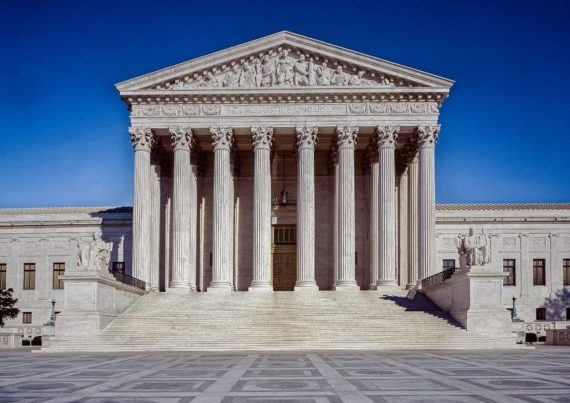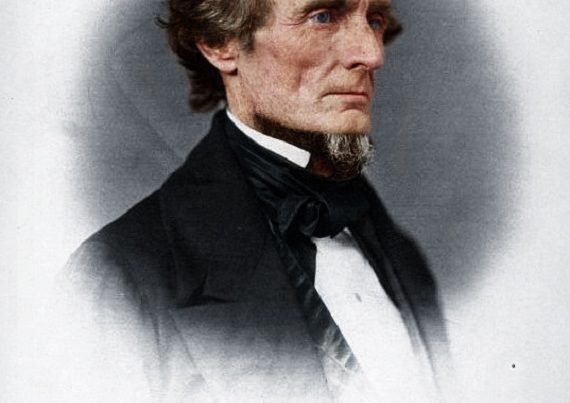In October 1801, Virginia’s great revolutionary and jurist Edmund Pendleton addressed a public excited about the election of Thomas Jefferson to the presidency. At eighty years old, this senior statesman offered thoughts on the election and the future of the United States. Pendleton’s bona fides were well known: member of the Continental Congress, first speaker of Virginia’s House of Delegates, presiding officer in the Virginia ratification convention that approved the U.S. Constitution.
In the months prior to the election, Americans had grown tired of John Adams’ Federalist Party. Ostensibly to protect the country from agents of the French Revolution, the Federalists had passed statutes making it a crime to criticize the federal government and giving Adams substantial powers to remove any alien he deemed dangerous. History knows these laws as the Alein and Sedition Acts of 1798.
In his letter entitled “The Danger Not Over,” Pendleton declared that he had no “intention to damp the public joy occasioned by the late changes of our public agents.”[1] The defeat of the Federalists at the ballot box, in his view, “arrested a train of measures which were gradually conducting us toward ruin.”[2] He shared the joy in seeing Jefferson elected to the presidency and the Republican Party taking control of the House of Representatives.
Pendleton had supported the Constitution of 1787, but during its twelve years in operation he observed troubling defects. The passage of the Alien and Sedition Acts, and other elements of the Federalists’ program, highlighted the flaws. Pendelton applauded the change in personnel brought by the 1800 election, but he urged his countrymen to “seize an opportunity to erect new barriers against folly, fraud, and ambition; and to explain such parts of the Constitution as have been already, or may be, interpreted contrary to the intention of those who adopted it.”[3] At this point, Pendleton set forth first principles of republican government and offered eight amendments to address the Federalists’ abuse of power.
Unfortunately, the Jeffersonian Republicans did not follow Pendleton’s advice “to erect new barriers.” They were content with the change in personnel. As a result, the Constitution continued to be molded and shaped to transfer extraordinary powers from the states and the people to the federal government.
The year 2024 has similarities with the 1800 election. The people were offered vastly competing visions for the future in Harris and Trump. A majority of the country is celebrating the election of Donald Trump and (hopefully) the cessation of open borders, inflationary monetary policy, and a militaristic foreign policy. The celebrants need an Edmund Pendleton to remind them that the change in leadership will amount to nothing unless they “seize an opportunity” to restrict government power.
In the spirit of Pendleton’s “The Danger Not Over,” I offer two amendments that would curtail federal power and bring constitutional interpretation closer to what the Framers envisioned.
The first deals with the spending power. Under the Constitution, Congress has the power “to pay the Debts and provide for the common Defence and general Welfare of the United States.” In the 1930s, the Supreme Court blessed an interpretation of these words to allow Congress to spend money for anything it deemed conducive to national welfare. During the ratification debates of 1787-88, the proponents of the Constitution assured Americans that Congress could spend money only for specific matters that were enumerated in the Constitution (e.g., raising armies, establishing a postal system, creating lower federal courts). James Madison, writing in Federalist No. 41, scoffed at the suggestion that the general welfare language freed Congress from the enumerated powers. Why have an enumeration of powers following the general language, Madison asked, if a general spending power was granted?[4]
The departure from Madison’s wisdom during the New Deal has permitted Congress to borrow and spend trillions of dollars on programs unrelated to the careful enumeration of powers. The result is a $36 trillion national debt. In 2023 the federal government took in $4.4 trillion in revenues, borrowed $1.7 trillion, and spent $6.1 trillion. This trend is not sustainable. Interest payments on the national debt will soon be the largest federal expenditure—more than defense, or Social Security, or Medicare.
To avoid national bankruptcy, we need a constitutional amendment prohibiting Congress from spending outside its enumerated powers and spending beyond its yearly revenues absent a supermajority vote to account for a national emergency.
The second proposed amendment deals with Congress’ commerce power. The Constitution grants Congress the authority to regulate interstate and foreign commerce. The purpose of this power was twofold: (1) to permit Congress to retaliate with trade restrictions if, say, Britian or France restricted American exports, and (2) to tear down trade barriers within the 13 states. The Framers understood “commerce” to refer to the traffic or trade in goods.
The modern Supreme Court, however, contends that “commerce” is synonymous with “economic activity.” Anything that in the aggregate could substantially affect economic activity comes within Congress’ purview. Many local activities such as manufacturing and agriculture are regulated by Congress because of a possible effect on a national market. Hence, Congress uses its commerce power to enact criminal statutes, civil rights laws, and to grow the administrative state. The Commerce Clause has become a utility tool to address any subject Congress wants to reach.
I suggest the following amendment: “Congress shall make no law pursuant to its commerce power acting upon an object before it becomes an article of interstate or foreign commerce, nor shall Congress have the power to regulate an item or activity solely because it alone, or in the aggregate, could substantially effect commerce or economic activity.” The amendment would return Commerce Clause interpretation to the original intent. No longer would Congress have a sweeping power to reach all facets of American life.
Americans have ample reason to cheer the passing of the Biden-Harris Administration. But, as Pendelton warned in 1801, the danger is not over. A change in leadership might provide a reprieve from wokeness, war mongering, and inflation; however, absent structural changes we will easily find ourselves in the same pickle in four or eight years. Let us “seize an opportunity to erect new barriers against folly, fraud, and ambition.” We might not have another chance.
***********************************************
[1] Edmund Pendleton, “The Danger Not Over” (1801), reprinted in Liberty and Order 271 (Lance Banning, ed., 2004).
[2] Id.
[3] Id.
[4] See Federalist No. 41, p. 209 (James Madison) (Bantam Books, ed., 1982).







“Americans have ample reason to cheer the passing of the Biden-Harris Administration. But, as Pendelton warned in 1801, the danger is not over.”
I have heard too many so-called conservatives suggest that Donald Trump has only a short time to get things corrected.
WHOA! This is where we need, for sure, to call on the Chinese. Maybe Confucius?
“A journey of many miles begins with a single step.”
Good point on the long game.
But structural changes are needed.
A So Called Conservative
“…the Jeffersonian Republicans did not follow Pendleton’s advice “to erect new barriers.” They were content with the change in personnel. As a result, the Constitution continued to be molded and shaped to transfer extraordinary powers from the states and the people to the federal government.”
That shouldn’t surprise, I suppose, but it still amazes. What can men do, except to keep trying to “right the ship.” However… The original plan was for the Creator to have His residence here on earth and created man exercising dominion and control over the creation. But, things went real bad before the 2nd day of rest, at the end of the 2nd week. So, since Genesis 3, God, in His way, is working His plan for the repossession of the earth, and the heavens (that’s what’s going on in the Bible). Things don’t get back to Genesis 2 until Revelation 21. It is not till then, the ship is finally righted, so to speak; although the Millennium will provide a good foretaste of that coming time.
Till that time comes to pass, perhaps, prayerfully, some men can make change for the good, in the “higher powers,” (Rom. 13); that some men will have, “…opportunity to erect new barriers against folly, fraud, and ambition.” At the same time, it would behoove Christians to know and and understand what has been going on and is going on in the bigger picture, and for all to embrace God the Son if they haven’t already, because it’s an eventuality that the whole universe one day is going to be under His kingship and Headship.
Both these proposed amendments would correct serious misinterpretations in the constitution; if they were adhered to, but then if the original intent had been followed, no such corrections would have been required. As a result, I must regard such measures as yet further examples of a “rearranging the deck chairs on the Titanic’ attitude towards solving the fundamental problem. That is the clear and obvious failure of ‘federalism’ to restrain and control a centralized State after it is erected and authorized. History has unequivocally demonstrated that mere ‘parchment barriers ‘are impotent to control power. To accomplish this, nothing but an equal or superior power and force in opposition will ever prove successful. Until the mistaken justification and fabrication of this ‘centralizing’ entity is corrected by its disassembly and removal, only additional such abuses stemming from it can be expected.